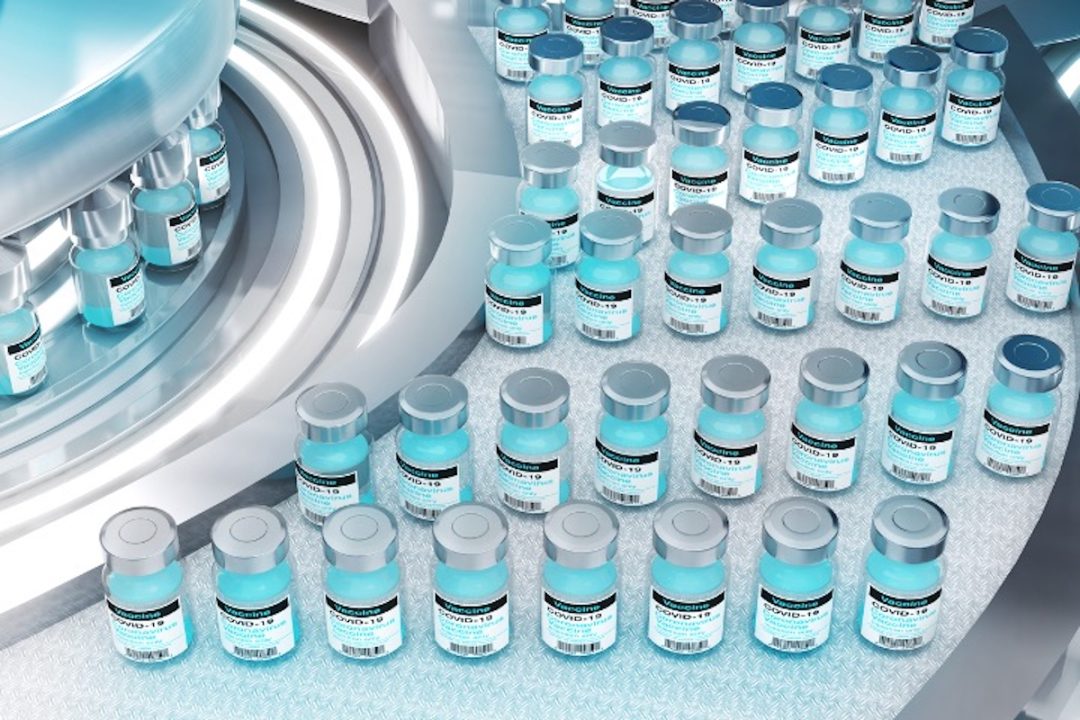
Biotech company Novavax says it’s nearing the finish line with the U.S. Food and Drug Administration (FDA) for full approval of its Covid-19 vaccine. After a prolonged wait, the company issued a cautiously optimistic statement on Wednesday:
We believe that our Biologics License Application (BLA) is approvable based on conversations with the U.S. Food and Drug Administration (FDA), as of our Prescription Drug User Fee Act (PDUFA) date of April 1 and through today.
The FDA recently sent a formal request for a “postmarketing commitment” — essentially asking for more clinical data to be gathered once the vaccine is approved and in use. Novavax said it “looks forward to engaging with the FDA expeditiously” to meet those conditions and move toward final approval.
This isn’t quite a green light, but it’s a strong yellow. And with this step, Novavax could soon become the latest addition to a growing list of Covid vaccines granted full licensure — even as broader public trust in these products continues to erode.
Long and Winding Delay
Novavax’s path to FDA approval has been fraught with challenges. Initially, the company aimed to roll out its Covid-19 vaccine in early 2022. However, manufacturing setbacks, regulatory scrutiny, and fluctuating demand contributed to significant delays.
In July 2022, the Biden administration purchased 3.2 million doses of the Novavax vaccine, contingent upon FDA Emergency Use Authorization (EUA) and a recommendation from the Centers for Disease Control and Prevention (CDC). The vaccine received EUA two days later. By that time, a significant portion of the U.S. population had already been vaccinated with other available vaccines. That reduced the immediate demand for Novavax’s product.
Following the EUA, Novavax experienced a period of relative inactivity in the U.S. market. While competitors like Pfizer and Moderna introduced bivalent boosters and updated formulations, Novavax’s presence remained limited. It wasn’t until August 30, 2024, that the FDA amended the EUA to include Novavax’s updated 2024-2025 formula for Americans aged 12 and older. The new version targets the Omicron variant JN.1 strain. Notably, the formula is already obsolete as this strain is long replaced by other variants.
Regardless, the BLA is now under final review. With new clinical obligations in place, Novavax is hoping its long-delayed bid for full approval will finally succeed.
Same Risks, Different Package
Unlike Pfizer and Moderna’s mRNA-based shots currently on the market, Novavax uses a more “traditional” platform. But that does not mean it’s risk-free — or even fundamentally safer.
The Novavax vaccine is produced using genetically modified insect cells. Specifically, scientists inject moth cells with a baculovirus engineered to express the SARS-CoV-2 spike protein. These cells then manufacture the spike protein. It is the very same part of the virus responsible for triggering the immune response — and, arguably, many of the adverse effects.
In other words, despite the different production method, the resulting product still introduces spike protein into the body. It also contains a novel adjuvant, Matrix-M, derived from saponins found in tree bark.
Speaking with The New American in July 2021, Dr. Richard Fleming warned against using Novavax, arguing that the spike protein is an actual biological weapon.
The FDA itself lists risks including myocarditis, pericarditis, injection-site inflammation, fatigue, and allergic reactions.
Crowded Vaccine Landscape
If Novavax wins full approval, it will join a packed and increasingly controversial roster of Covid vaccines on the U.S. market.
Pfizer-BioNTech and Moderna continue to dominate, thanks to lucrative government contracts and consistent CDC endorsements. Both rely on mRNA technology — delivering genetic instructions that prompt the body to manufacture the spike protein itself. These were the first Covid vaccines approved for full use, and they remain the centerpiece of the U.S. vaccination campaign.
Johnson & Johnson’s vaccine, once promoted as a simpler one-dose option, was officially pulled from the U.S. market in 2023. That happened following concerns over “rare” but serious blood clotting disorders.
Now Novavax is pitching itself as the traditionalist’s option — a protein subunit vaccine meant to appeal to skeptics of mRNA. Earlier in April, the company claimed its shot causes fewer and milder short-term side effects than Pfizer’s. But as outlined above, the reality is far more complex.
As described in numerous articles, interviews, and a special issue of The New American, Covid vaccines — including Novavax — have been linked to a wide range of severe adverse reactions. Those include myocarditis and pericarditis; neurological, immunological and reproductive damage; and even death, particularly among young people.
Yet to this day, public health authorities have been slow to acknowledge these risks or investigate them transparently. Moreover, even under the new leadership of Robert F. Kennedy Jr., once a fierce critic of the policy, the Department of Health and Human Services (HHS) continues to endorse their use in Americans as young as 6 months old.
Still Shielded From Liability
Despite the official end of the Covid-19 public health emergency in 2023, the legal protections shielding vaccine manufacturers from liability remain intact.
Under the Public Readiness and Emergency Preparedness (PREP) Act, companies that produce Covid-19 vaccines are immune from lawsuits related to injuries or deaths caused by their products. That immunity can only be challenged if “willful misconduct” is proven — a bar so high it’s virtually meaningless in practice.
That means if Novavax receives full FDA approval, recipients who suffer harm will still have no legal recourse against the manufacturer.
Kennedy has the authority to amend or revoke these legal protections. But so far, no such move has been made. Ultimately, the government may yet again be asking Americans to trust a product whose makers remain entirely insulated from the consequences of failure.
In parallel with keeping older Covid vaccines on the market and likely adding Novavax to the list, HHS is also advancing the Biden-era “Project NextGen.” The initiative, backed by billions in funding, aims to develop a new generation of Covid vaccines and therapeutics.
All in all, despite public fatigue and a change in leadership, the federal vaccine agenda isn’t just lingering. It’s moving full steam ahead.






